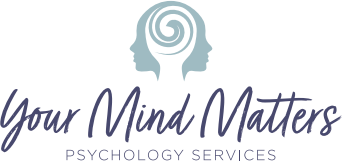Anxiety Counselling
Anxiety disorders are the most common type of mental disorders diagnosed in Australia. It is more than just feeling stressed, fearful or worried, which we all experience from time to time. While anxiety is considered a natural reaction to a stressful situation, it becomes problematic when:
- Symptoms become severe and/or excessive
- The anxiety start interfering with daily life
- The anxiety persists for several months
- Symptoms are accompanied by fatigue, concentration difficulties, irritability, muscle tension, sleep disturbance and restlessness.
At Your Mind Matters Psychology Services, we treat a range of anxiety conditions, including:
- Generalised Anxiety Disorder
- Obsessive Compulsive Disorder
- Specific phobia
- Social Anxiety Disorder
- Post-traumatic Stress Disorder
- Agoraphobia
If you are experiencing heightened levels of anxiety and finding it difficult to cope, contact us today to book an appointment with one of our psychologists. Alternatively, use our online appointment form and we’ll get in touch.


